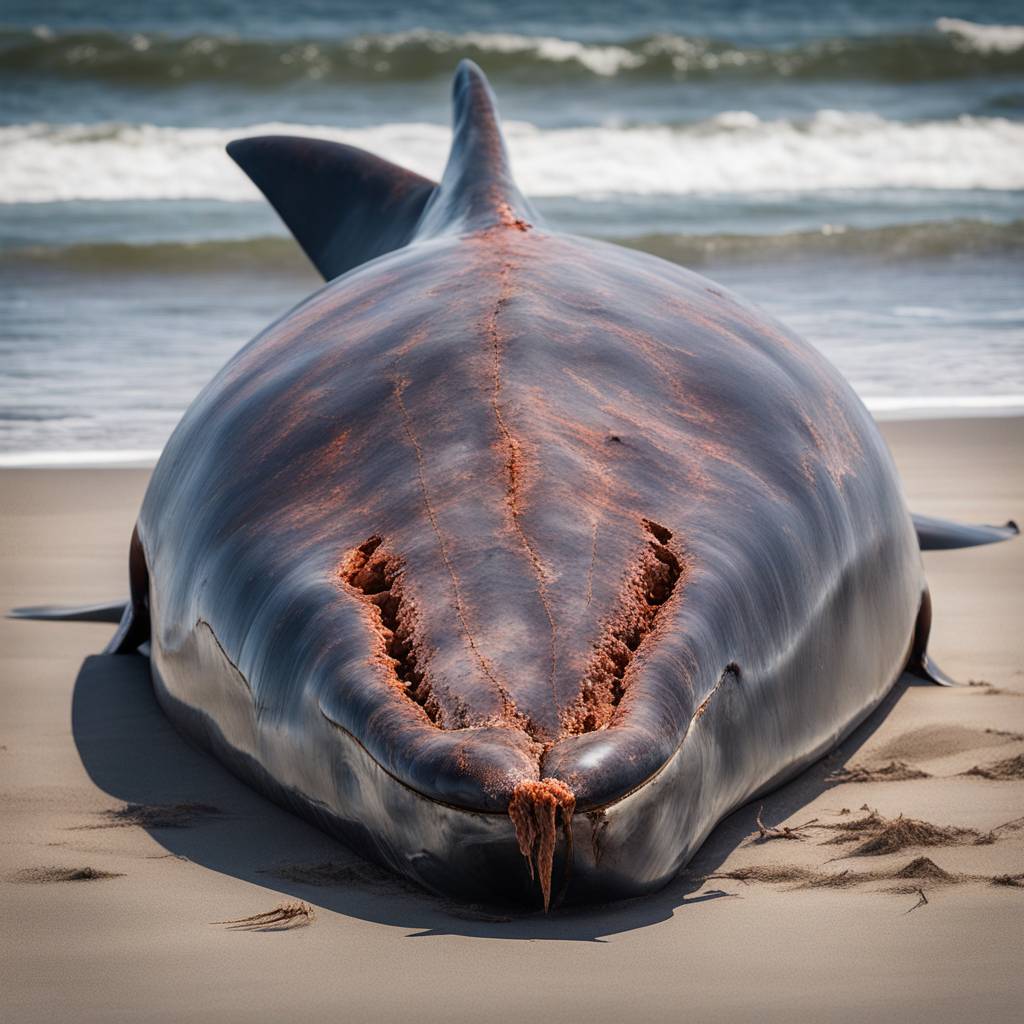A dead humpback whale was found washed ashore on New Jersey’s Long Beach Island, marking the first such death in the state this year. The Marine Mammal Stranding Center received a call reporting the dead whale in the surf in Long Beach Township. The whale was estimated to be between 20 to 30 feet long, but no further information was released regarding any signs of injury or illness. This incident follows 14 other whale deaths in New Jersey in 2023. The National Oceanographic and Atmospheric Administration did not provide any information on the recent whale death or similar fatalities along the U.S. East Coast.
Opponents of offshore wind farms have raised concerns about the connection between the whale deaths and the preparation work for these wind farms. Protect Our Coast NJ expressed alarm over the whale deaths and has criticized official scientific statements that suggest offshore wind activities are not responsible. The group questions whether activities such as the use of sonar sparkers and seismic devices could be disrupting the communication patterns of marine mammals. Despite these concerns, scientific agencies including the U.S Bureau of Ocean Energy Management, the Marine Mammal Commission, and the New Jersey Department of Environmental Protection have stated that there is no evidence linking whale deaths to offshore wind preparation.
Robin Shaffer, president of Protect Our Coast NJ, raised the possibility that disorientation, rather than ship strikes or fishing gear entanglements, could be the primary cause of whale deaths. The group remains skeptical of the statements released by scientists following these incidents. They continue to question whether there may be other factors at play that are causing harm to marine mammals. The ongoing controversy surrounding offshore wind farms and their potential impact on marine life highlights the need for further research and investigation into the causes of whale deaths along the U.S. East Coast.
The concerns raised by Protect Our Coast NJ have drawn attention to the potential risks associated with offshore wind farm activities and their impact on marine mammals like humpback whales. The group’s skepticism of official scientific pronouncements underscores the need for transparency and thorough investigation into the factors contributing to whale deaths. By questioning the narratives provided by scientific agencies, Protect Our Coast NJ is advocating for a more comprehensive understanding of the threats facing marine life in the region. The ongoing debate over the causes of the recent whale deaths in New Jersey illustrates the complexity of balancing environmental conservation efforts with the development of renewable energy sources like offshore wind farms.
The whale death on Long Beach Island serves as a stark reminder of the fragility of marine ecosystems and the challenges posed by human activities such as offshore wind farm construction. As stakeholders continue to grapple with the competing interests of environmental protection and sustainable energy development, it is crucial to prioritize the preservation of wildlife habitats and the mitigation of potential risks to marine mammals. By fostering a more comprehensive and collaborative approach to addressing these issues, policymakers, scientists, and environmental advocates can work together to ensure the long-term health and well-being of marine ecosystems along the U.S. East Coast. The incident involving the dead humpback whale underscores the need for continued vigilance and research to better understand the interconnected impacts of human activities on marine life.


